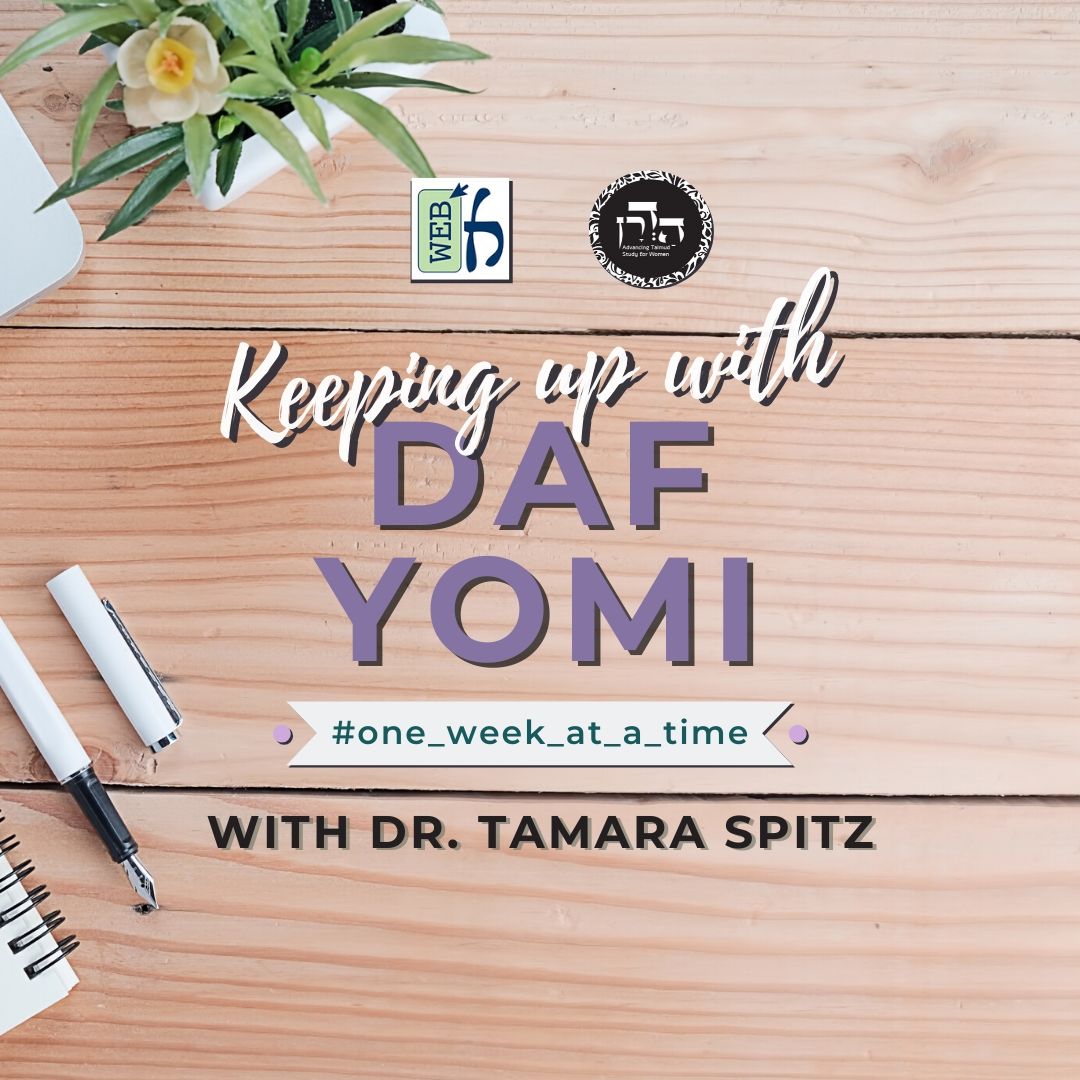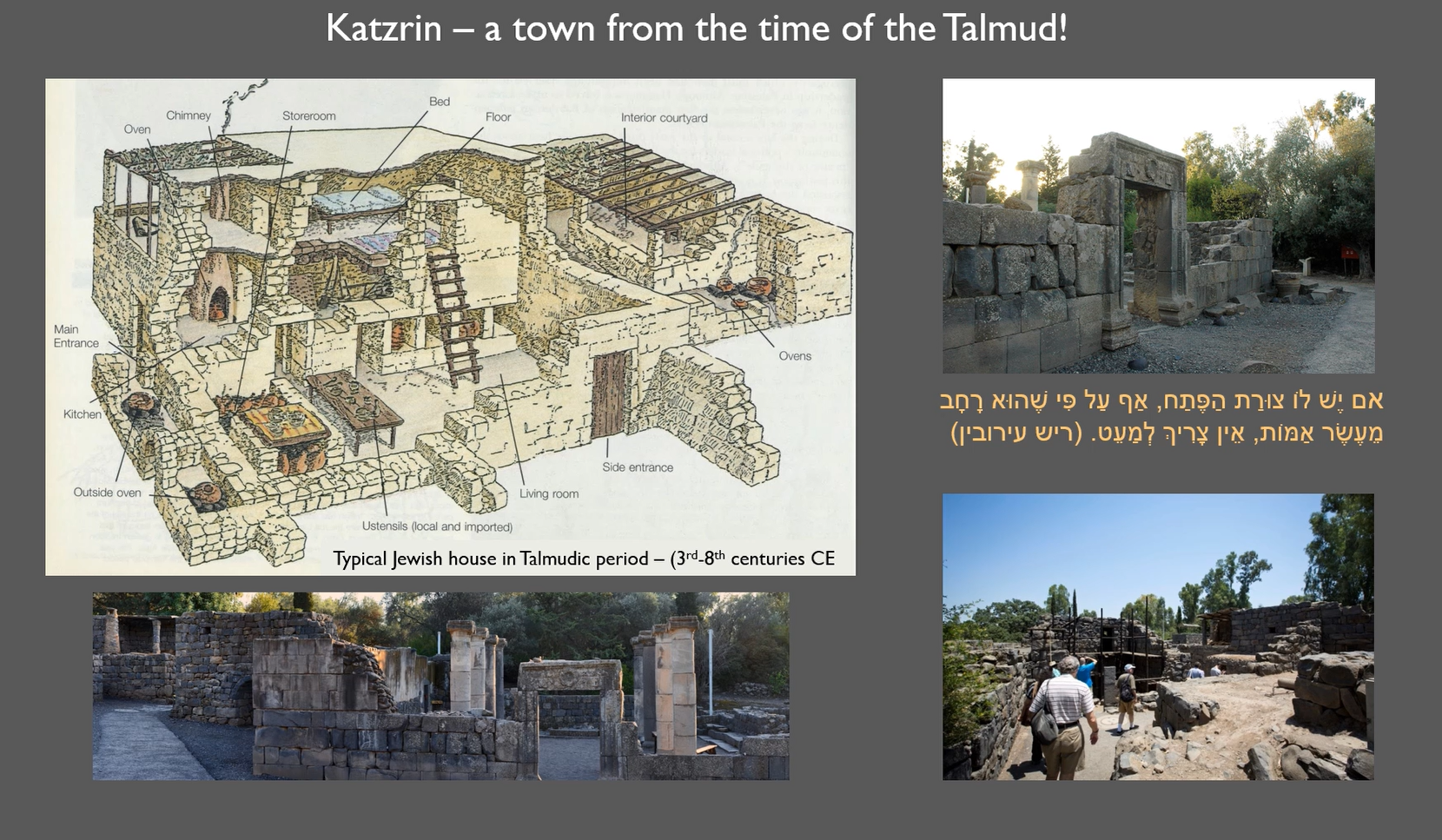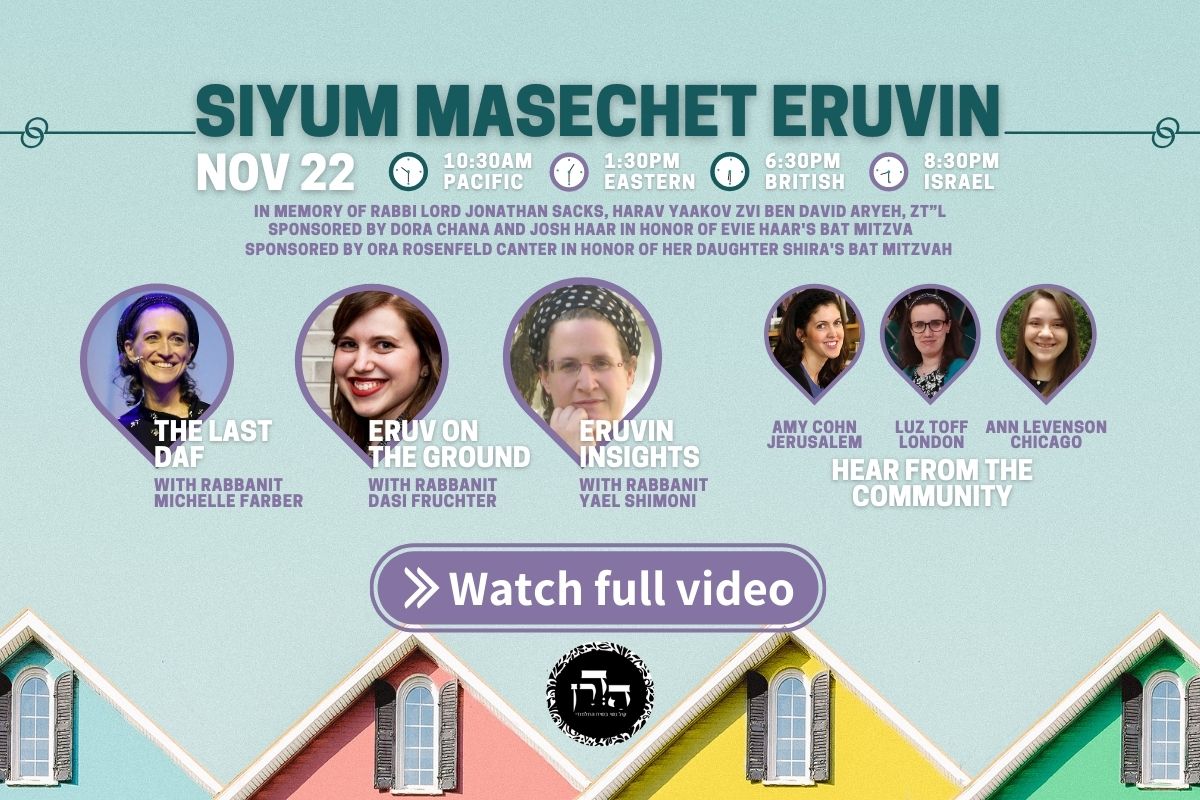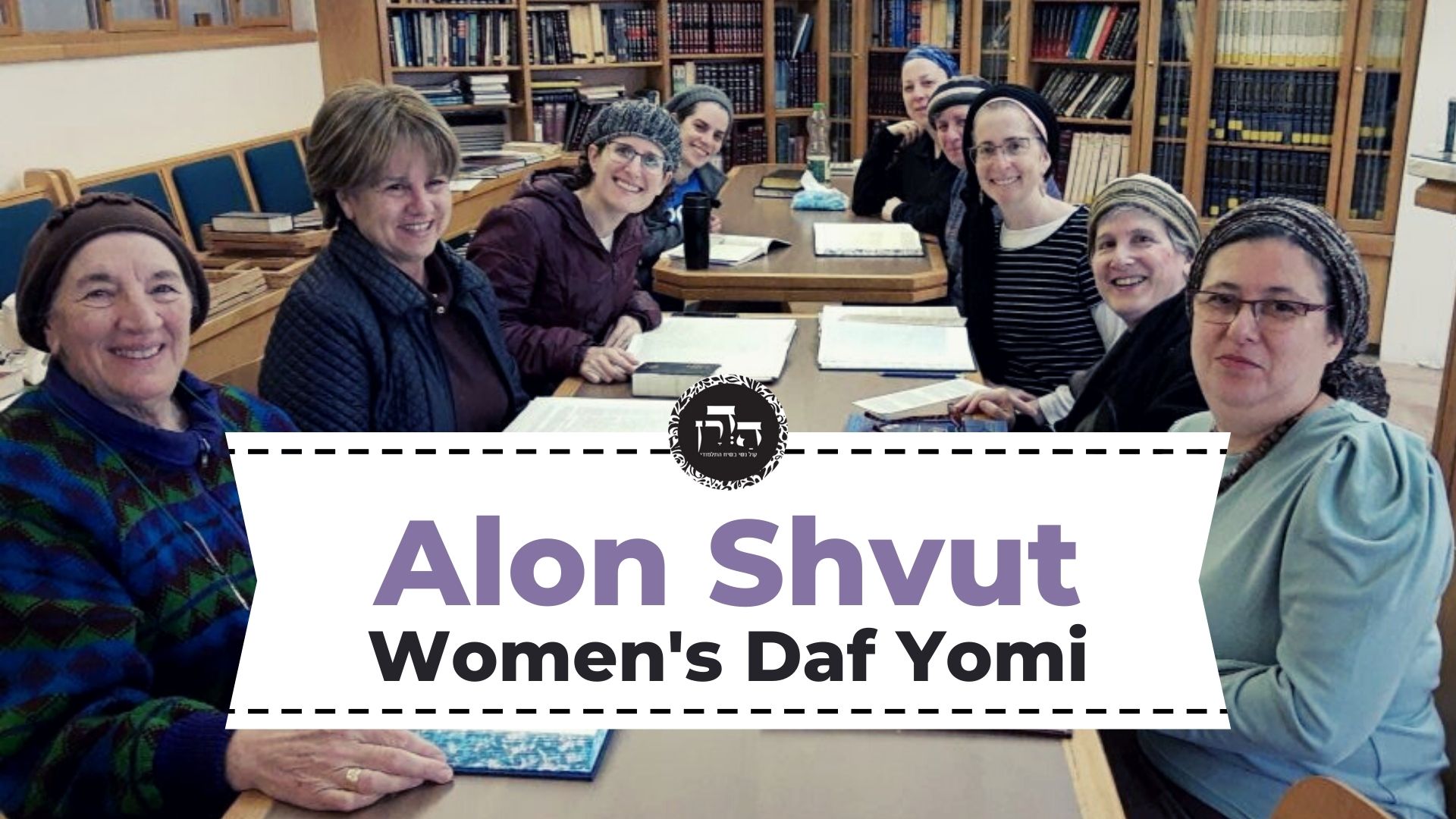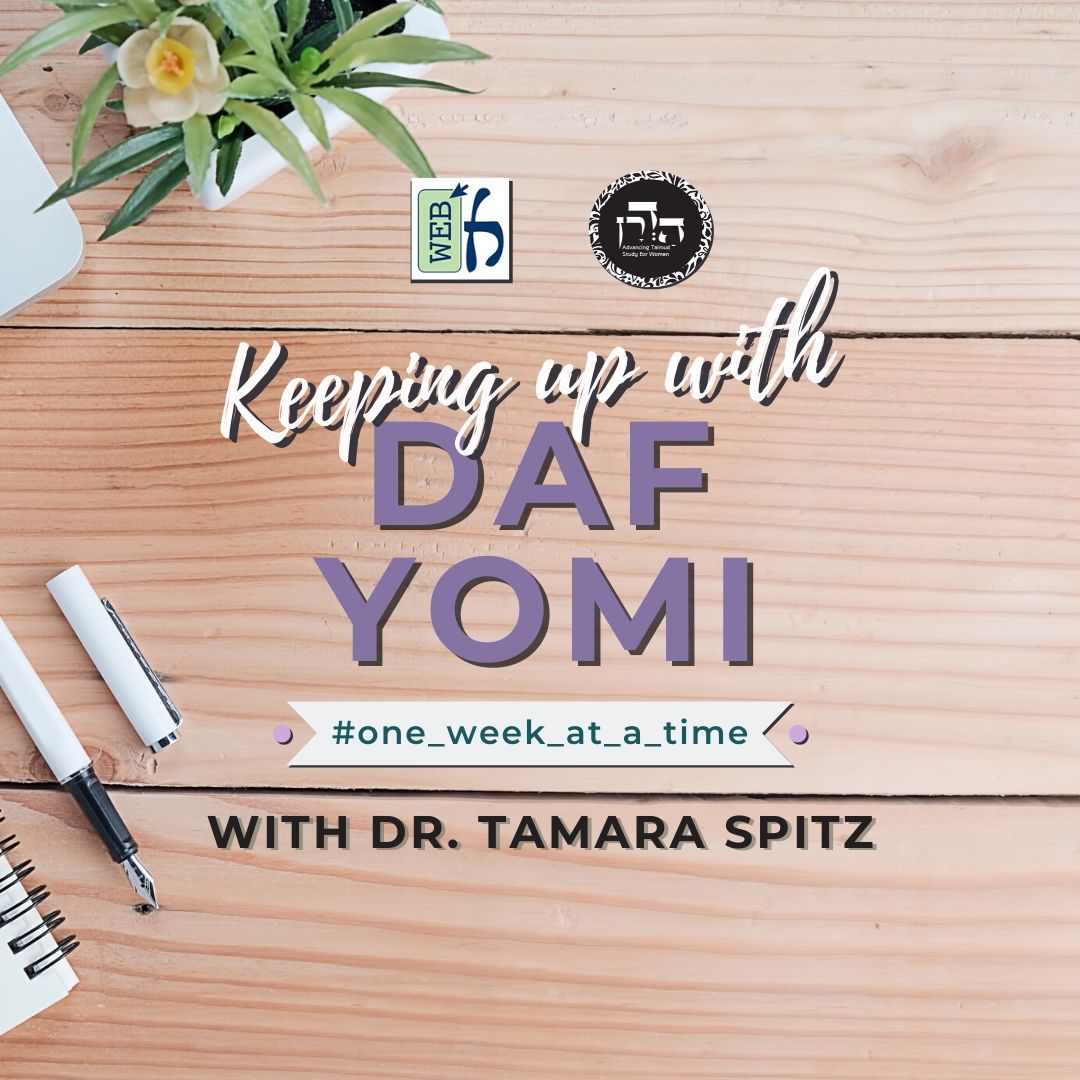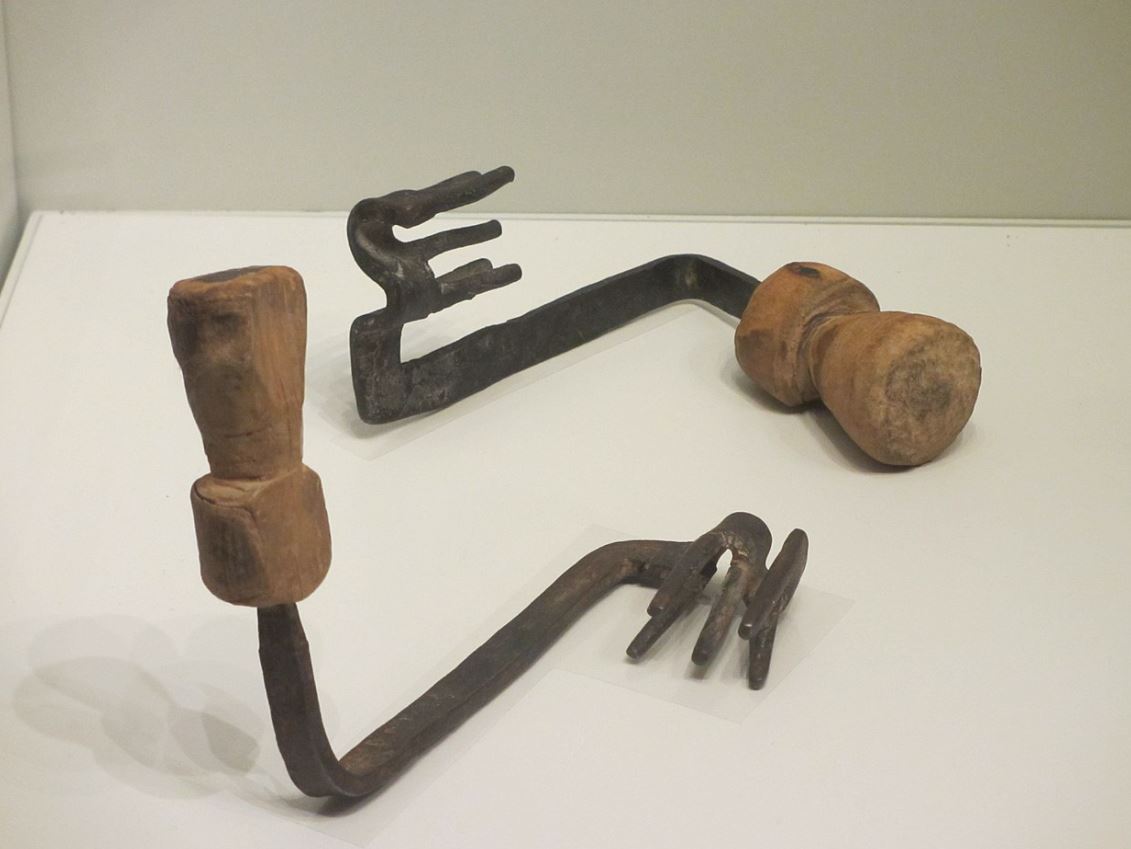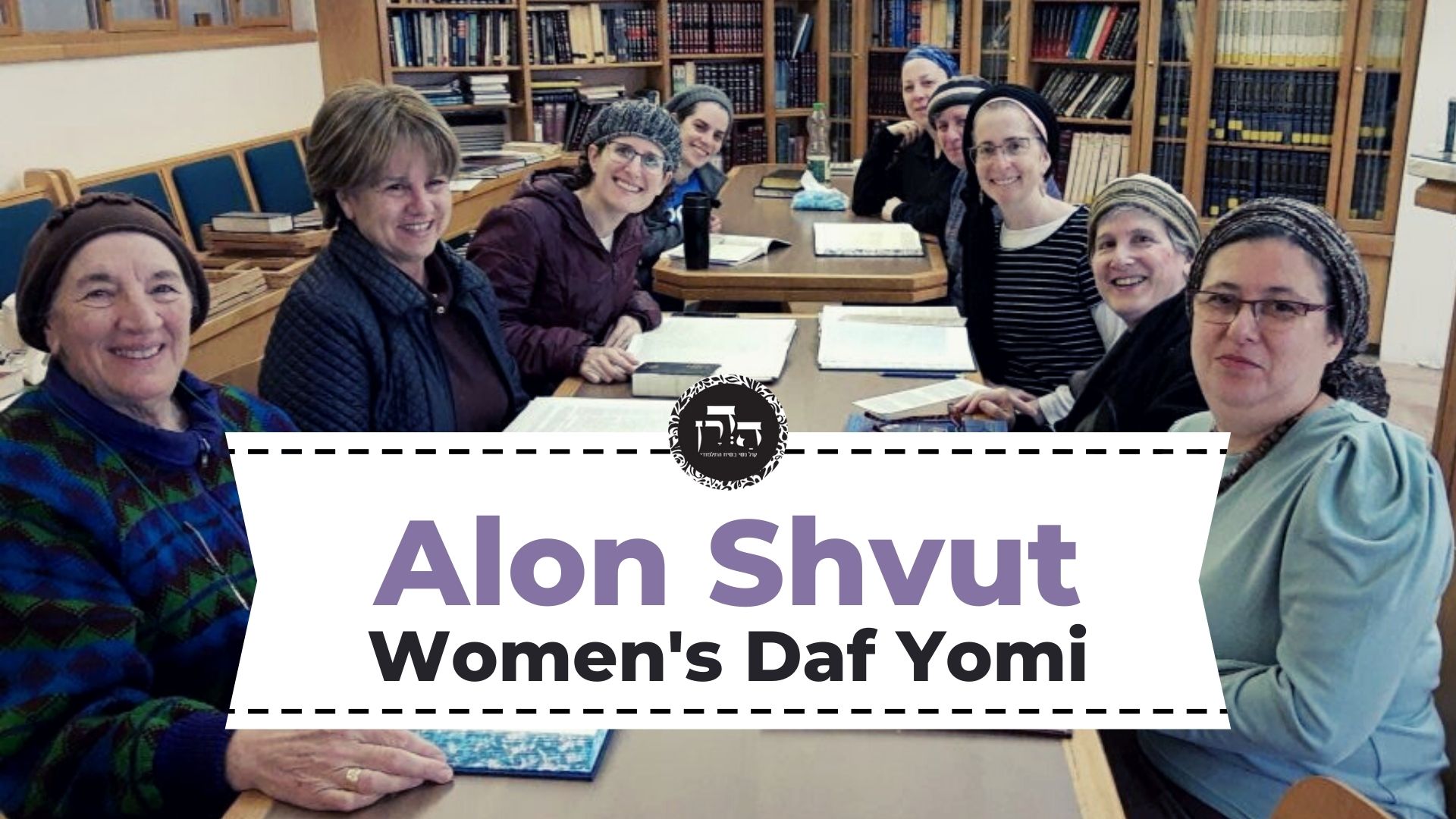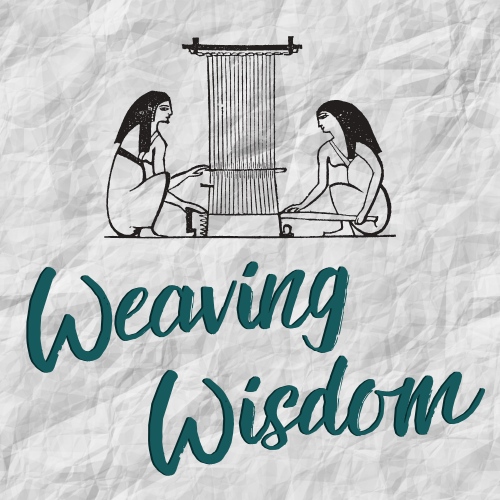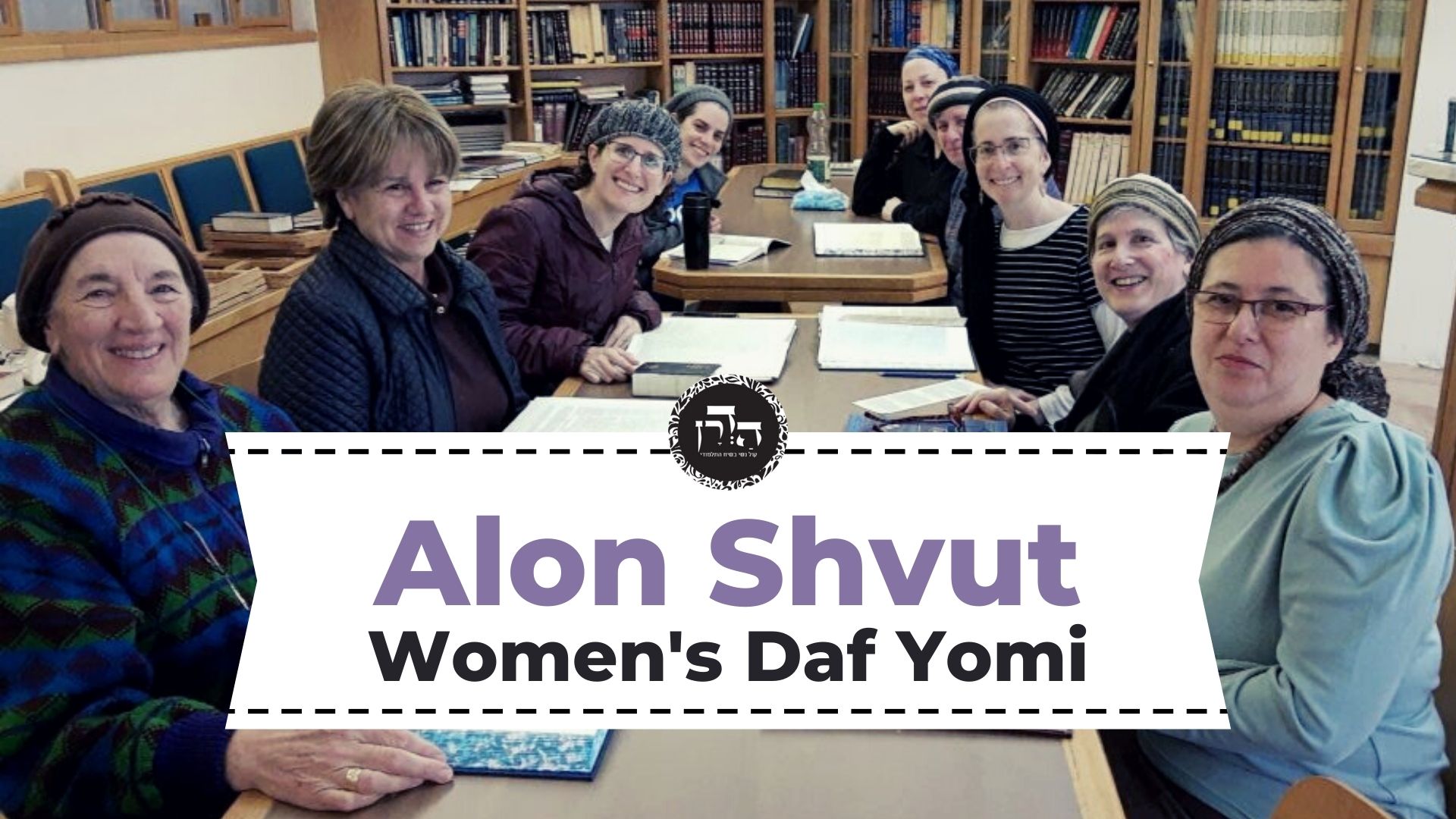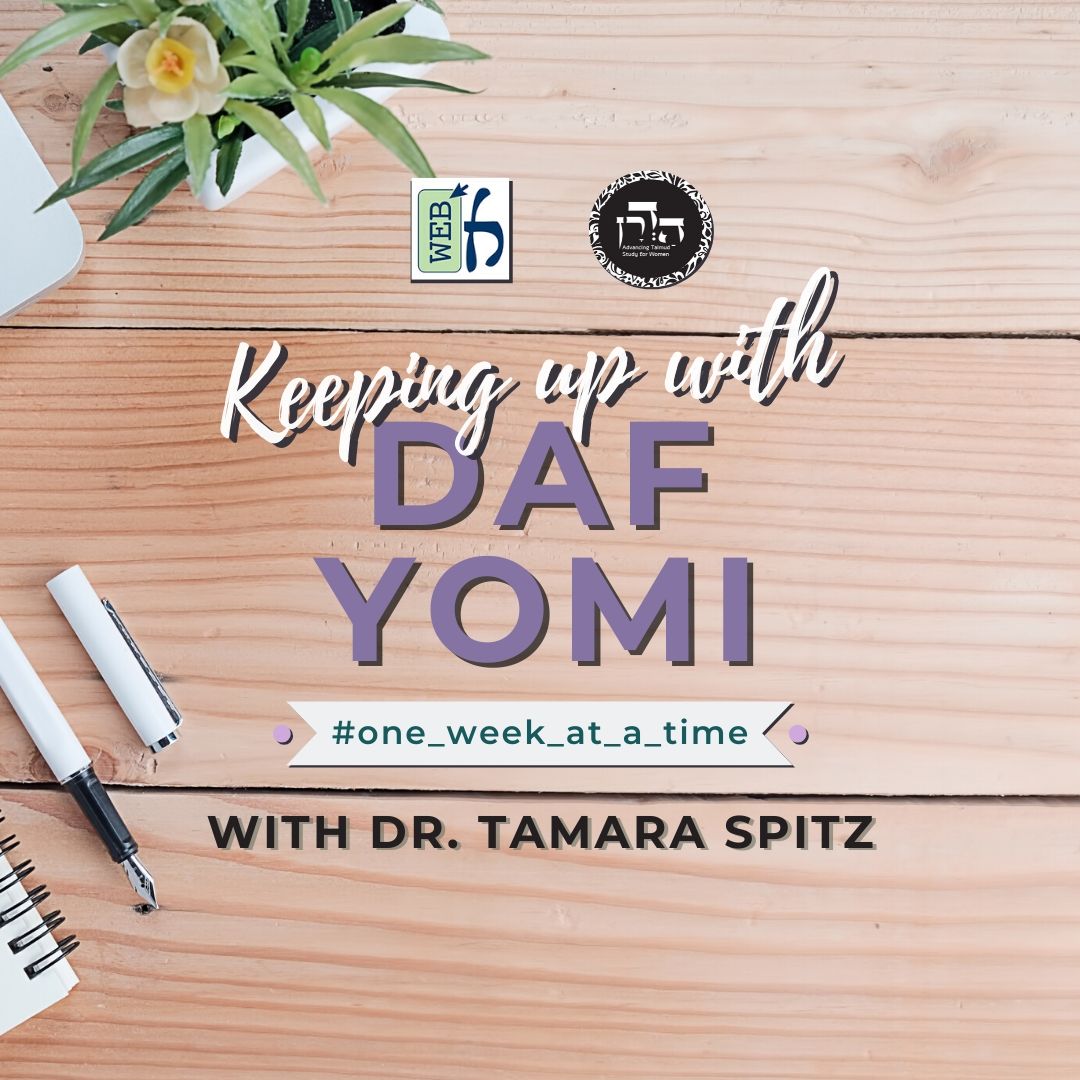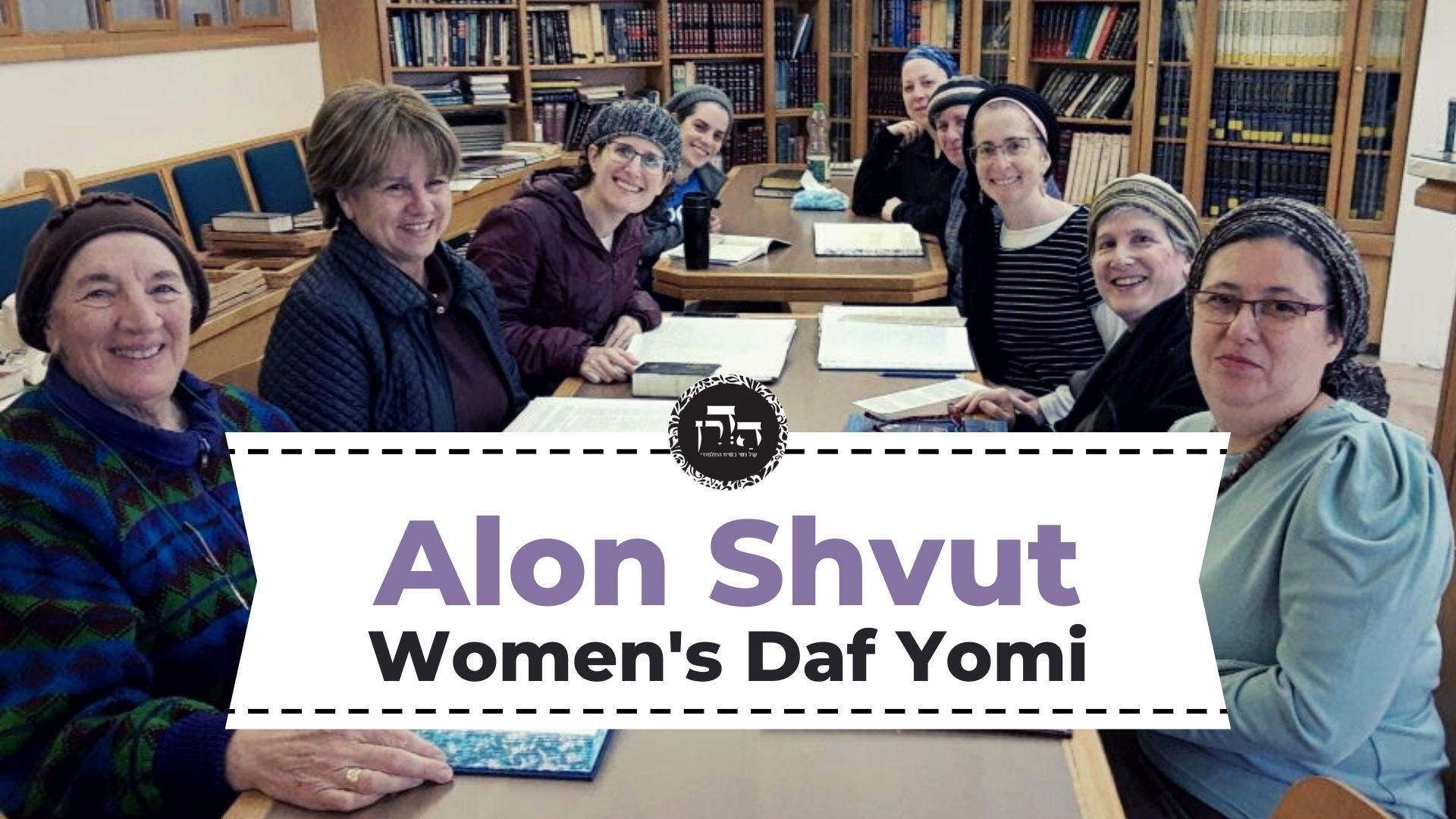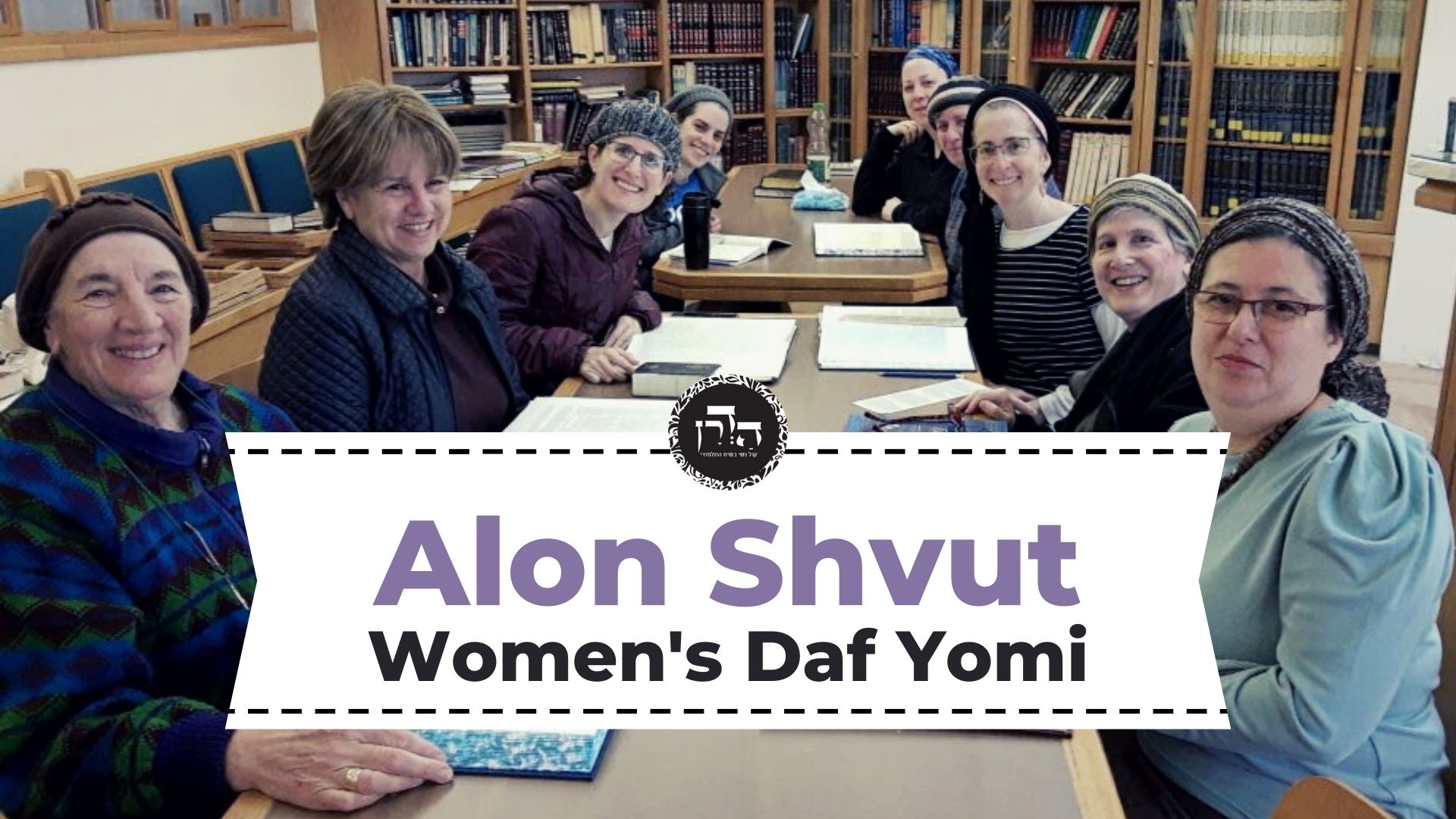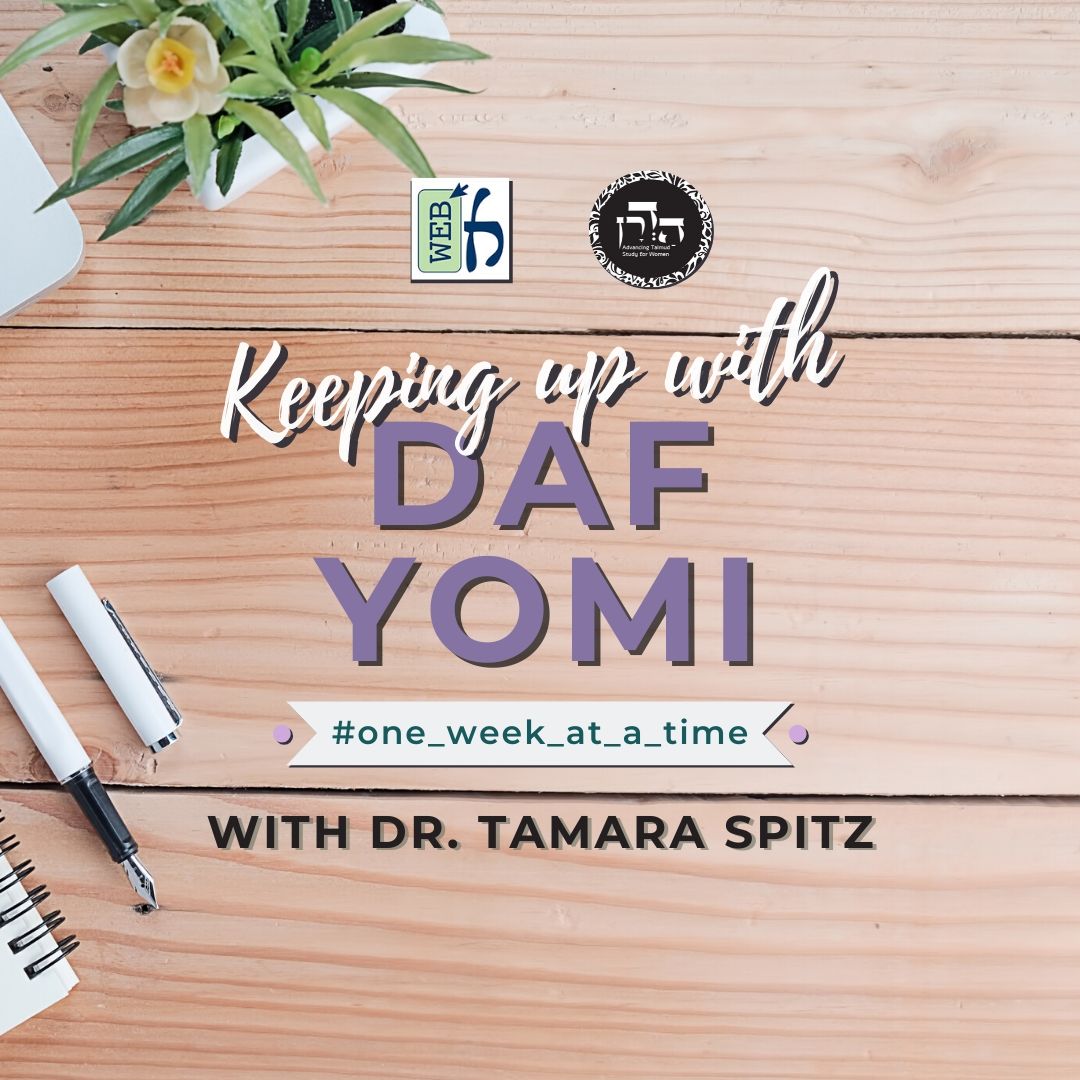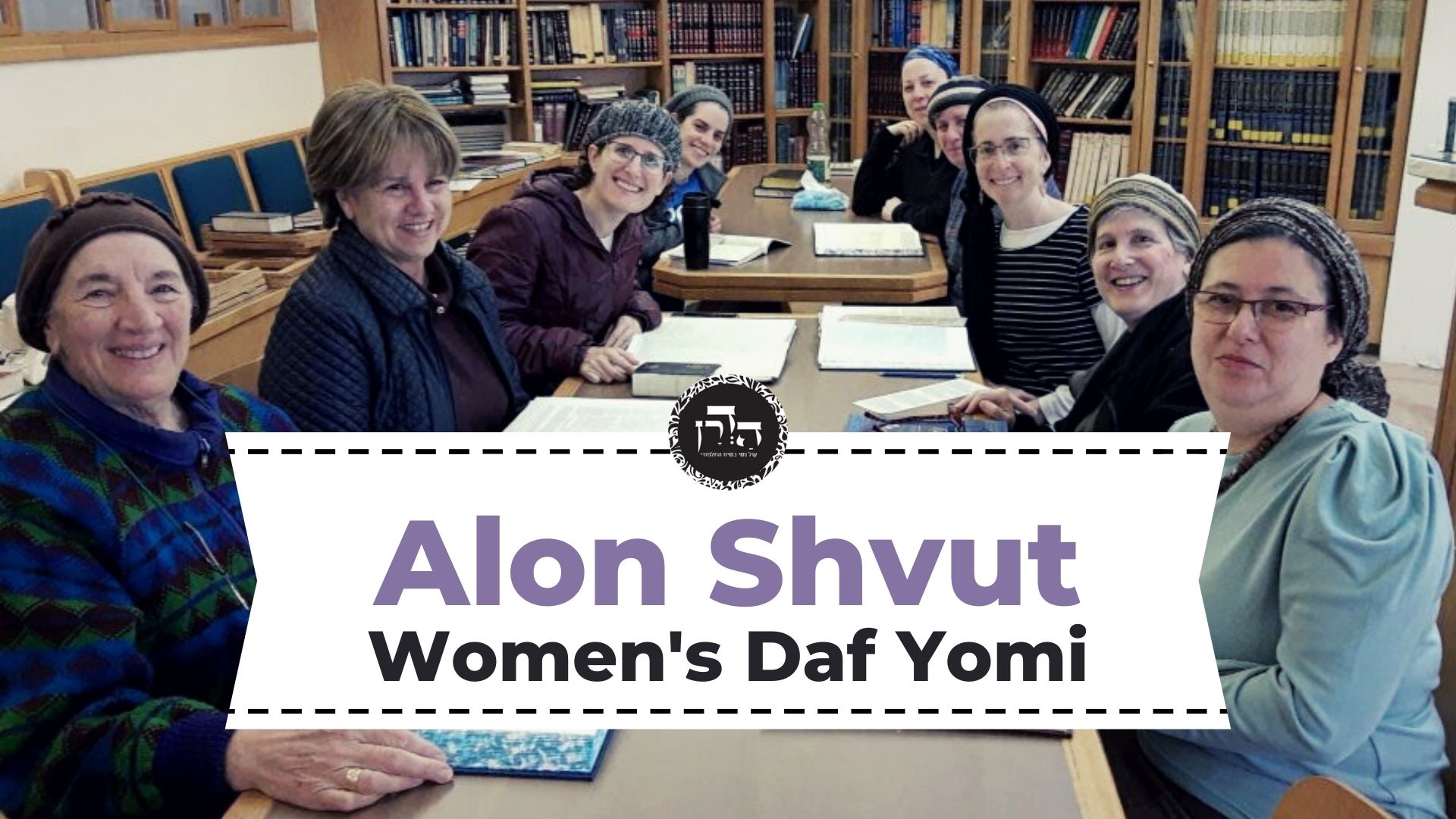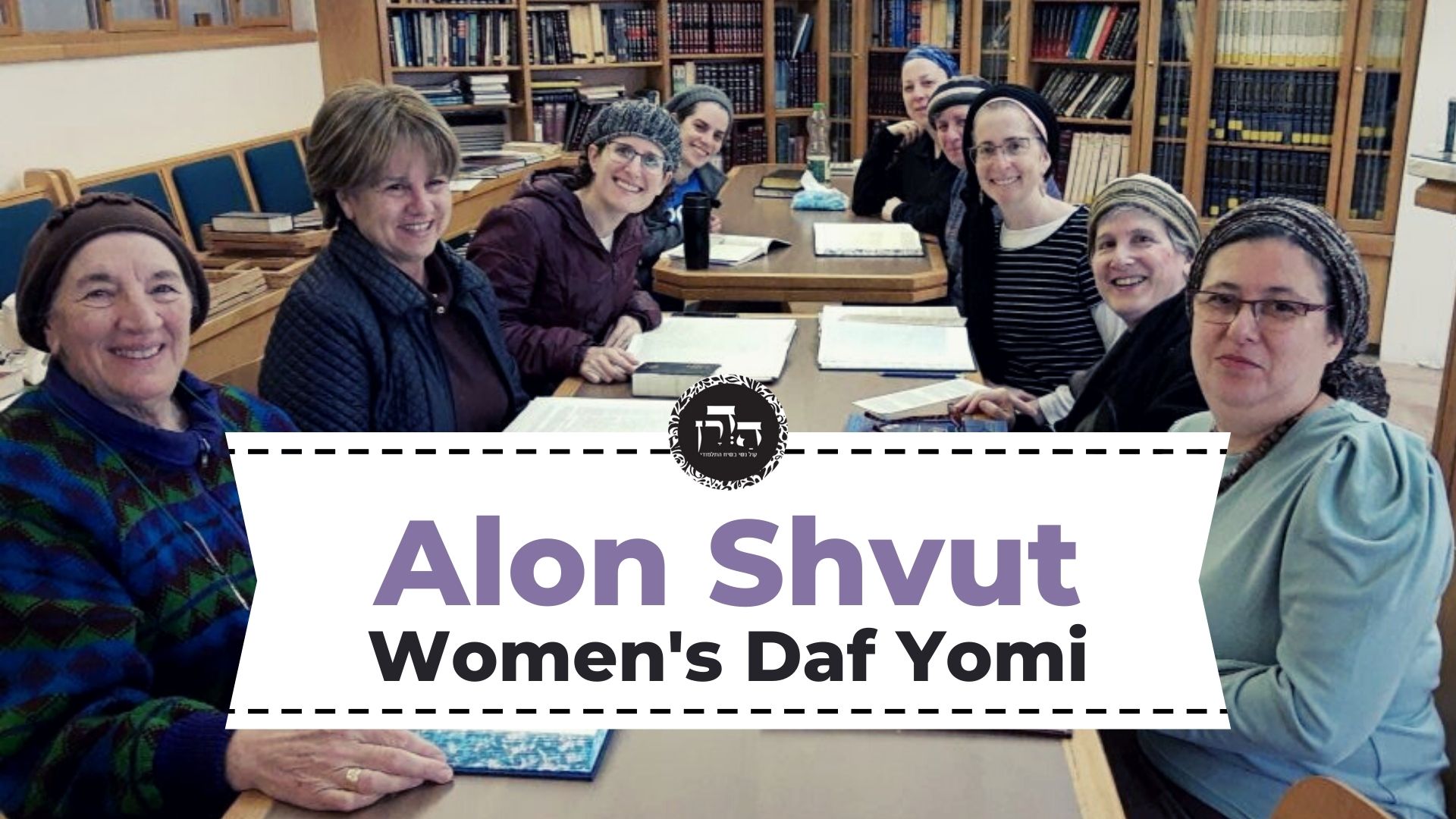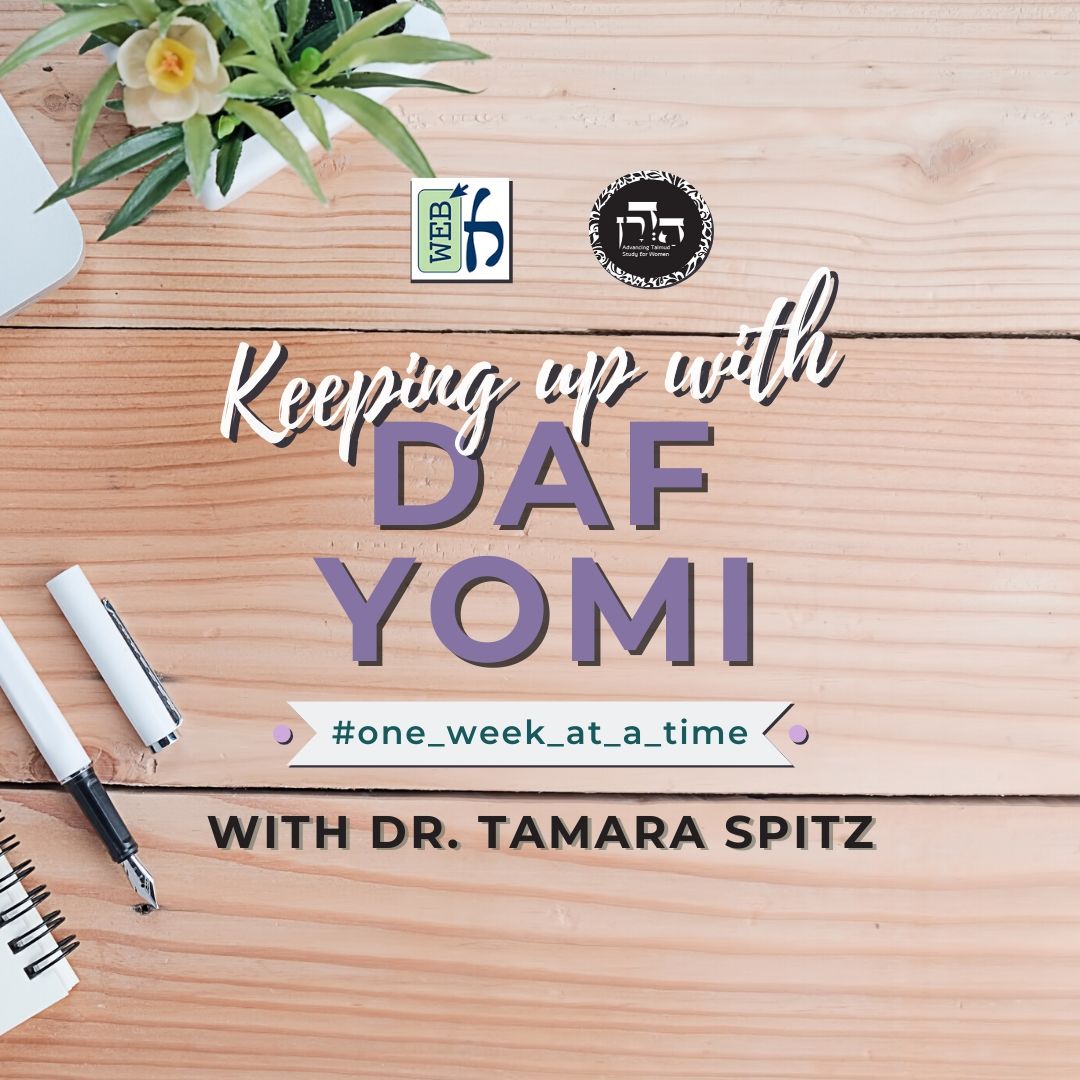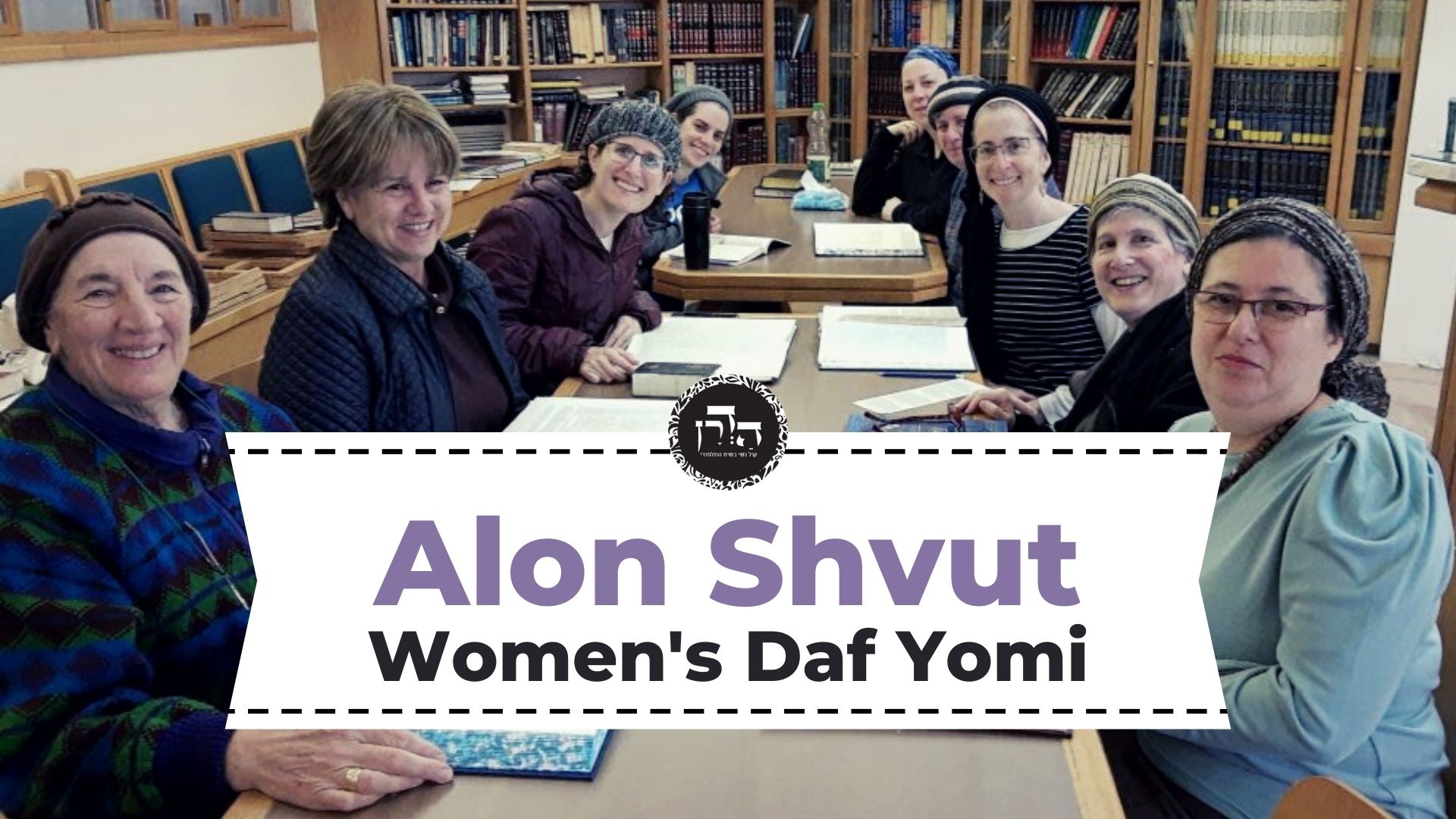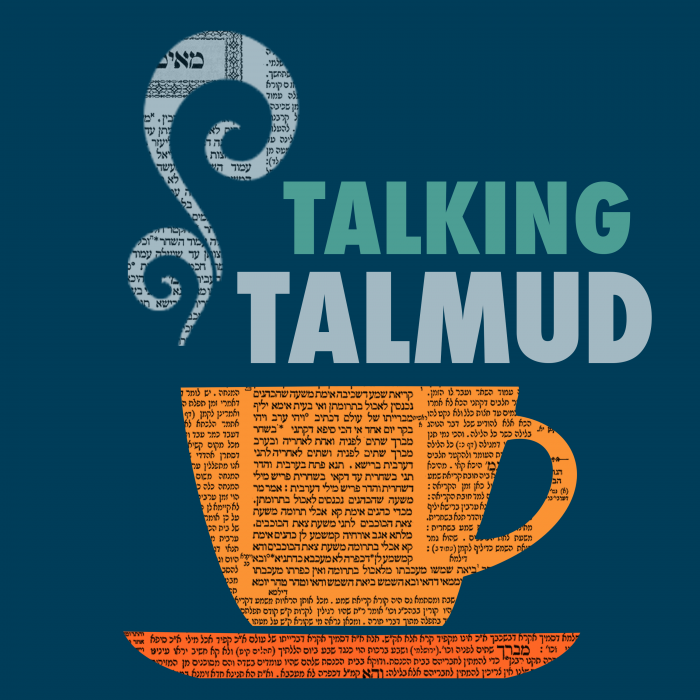Eruvin 21
מְטַפֵּס וְעוֹלֶה מְטַפֵּס וְיוֹרֵד.
must climb up and climb down into the well, and drink there.
אִינִי? וְהָאָמַר רַב יִצְחָק אָמַר רַב יְהוּדָה אָמַר שְׁמוּאֵל: לֹא הוּתְּרוּ פַּסֵּי בֵירָאוֹת אֶלָּא לִבְאֵר מַיִם חַיִּים בִּלְבַד. וְאִי לִבְהֵמָה, מָה לִי חַיִּים מָה לִי מְכוּנָּסִין? בָּעִינַן מִידֵּי דַּחֲזֵי לְאָדָם.
The Gemara raises a difficulty: Is that so? Is the allowance of upright boards for animals alone? Didn’t Rav Yitzḥak say that Rav Yehuda said that Shmuel said: Upright boards surrounding wells were permitted only where the wells contain potable, running spring water? If the allowance is only for animals, what is the difference to me if it is spring water and what is the difference to me if it is collected water? Granted, collected water is inferior to spring water, but it is still suitable for animals to drink. The Gemara answers: We require something that is fit for humans.
גּוּפָא: לֹא הוּתְּרוּ פַּסֵּי בֵירָאוֹת אֶלָּא לִבְהֵמָה בִּלְבַד, אֲבָל אָדָם מְטַפֵּס וְעוֹלֶה מְטַפֵּס וְיוֹרֵד. וְאִם הָיוּ רְחָבִין, אֲפִילּוּ לְאָדָם נָמֵי. וְלֹא יְמַלֵּא אָדָם מַיִם וְיִתֵּן לִפְנֵי בְהֶמְתּוֹ, אֲבָל מְמַלֵּא הוּא וְשׁוֹפֵךְ לִפְנֵי בְּהֵמָה וְשׁוֹתָה מֵאֵילֶיהָ.
The Gemara examines the baraita cited in the course of the previous discussion. Returning to the matter itself, the statement quoted above: Upright boards surrounding wells were permitted only for cattle, but a person must climb up and climb down into the well and drink there. But if the wells were too wide for him to climb, they are permitted for a person as well. A person may not fill a bucket with water and hold it before his animal on Shabbat, but he may fill it and pour it out before the animal into a trough, and the animal drinks of its own accord.
מַתְקֵיף לַהּ רַב עָנָן: אִם כֵּן, מָה הוֹעִילוּ פַּסֵּי בֵירָאוֹת? מָה הוֹעִילוּ?! לְמַלּאוֹת מֵהֶן!
Rav Anan strongly objects to this explanation: If so, what purpose do the boards surrounding a well serve? The Gemara immediately expresses its surprise: How can he ask what purpose do they serve? They allow people to draw water from the wells, which would otherwise be prohibited.
אֶלָּא: מָה הוֹעִיל רֹאשָׁהּ וְרוּבָּהּ שֶׁל פָּרָה?
Rather, Rav Anan’s question should be understood as follows: What purpose is served in requiring that the enclosed area be large enough for the cow’s head and most of its body, if in any case the cow may not be given to drink straight from the bucket?
אָמַר אַבָּיֵי: הָכָא בְּמַאי עָסְקִינַן — בְּאֵיבוּס הָעוֹמֵד בִּרְשׁוּת הָרַבִּים גָּבוֹהַּ עֲשָׂרָה וְרוֹחַב אַרְבָּעָה וְרֹאשׁוֹ נִכְנָס לְבֵין הַפַּסִּין וְכוּ׳.
Abaye said: In fact, it is permitted to give the animal to drink in any manner in the area enclosed by the boards surrounding the well. With what are we dealing here? We are dealing with a special case, with a manger or trough that stands in the public domain, and is ten handbreadths high and four handbreadths wide, i.e., it constitutes a private domain, and one end of it interposes into the area between the upright boards surrounding a well. In such a case, the Sages prohibited one to fill a bucket with water in the area enclosed by the upright boards and hold it before his animal; they were concerned that the manger might become damaged, and one might come to carry the bucket from the private domain into the public domain or vice versa while fixing the damaged manger.
אָמַר רַב יִרְמְיָה בַּר אַבָּא אָמַר רַב: אֵין בּוּרְגָּנִין בְּבָבֶל, וְלֹא פַּסֵּי בֵירָאוֹת בְּחוּץ לָאָרֶץ.
It is prohibited to walk more than two thousand cubits from a city on Shabbat. However, if there are small watchmen’s huts [burganin] outside the city that are relatively close together, they are considered part of the city, and consequently the two thousand cubit limit is measured from the last such hut. Rav Yirmeya bar Abba said that Rav said: The law with regard to these huts [burganin] does not apply in Babylonia, nor does the allowance with regard to upright boards surrounding a well apply outside of Eretz Yisrael.
בּוּרְגָּנִין בְּבָבֶל לָא — דִּשְׁכִיחִי בִּידְקֵי, פַּסֵּי בֵירָאוֹת בְּחוּץ לָאָרֶץ לָא — דְּלָא שְׁכִיחִי מְתִיבָתָא. אֲבָל אִיפְּכָא עָבְדִינַן.
The Gemara explains: The law with regard to huts does not apply in Babylonia because floods are common there; and since the huts are liable to be swept away by the floodwaters, they are not regarded as dwellings. The allowance with regard to upright boards surrounding a well does not apply outside of Eretz Yisrael, because yeshivot are not common there, and the allowance was only granted to those traveling for the sake of a mitzva such as Torah study. But we do say the opposite, i.e., we apply the law of huts outside of Eretz Yisrael and we apply the allowance of upright boards surrounding a well in Babylonia.
אִיכָּא דְּאָמְרִי, אָמַר רַב יִרְמְיָה בַּר אַבָּא אָמַר רַב: אֵין בּוּרְגָּנִין וּפַסֵּי בֵירָאוֹת, לֹא בְּבָבֶל וְלֹא בַּחוּץ לָאָרֶץ. בּוּרְגָּנִין בְּבָבֶל לֹא — דִּשְׁכִיחִי בִּידְקֵי, בְּחוּץ לָאָרֶץ נָמֵי לָא — דִּשְׁכִיחִי גַּנָּבֵי.
The Gemara cites an alternative version of the previous discussion. Some say that Rav Yirmeya bar Abba said that Rav said: The laws with regard to huts and upright boards surrounding a well apply neither in Babylonia specifically, nor outside of Eretz Yisrael generally. The Gemara explains: The law with regard to huts does not apply in Babylonia, because floods are common there. It also does not apply outside of Eretz Yisrael, because thieves who steal from such huts are common there; therefore, people do not regard the huts as dwellings.
פַּסֵּי בֵירָאוֹת בְּבָבֶל לָא — דִּשְׁכִיחִי מַיָּא. בְּחוּץ לָאָרֶץ נָמֵי לָא — דְּלָא שְׁכִיחִי מְתִיבָתָא.
The allowance with regard to upright boards surrounding a well does not apply in Babylonia, because water is common there. Babylonia has many rivers and canals, and therefore wells are not essential there. Outside of Eretz Yisrael in general it also does not apply, because yeshivot are not common there.
אֲמַר לֵיהּ רַב חִסְדָּא לְמָרִי בְּרֵיהּ דְּרַב הוּנָא בְּרֵיהּ דְּרַב יִרְמְיָה בַּר אַבָּא: אָמְרִי אָתֵיתוּ מִבַּרְנִשׁ לְבֵי כְנִישְׁתָּא דְּדָנִיֵּאל דַּהֲוָה תְּלָתָא פַּרְסֵי בְּשַׁבְּתָא, אַמַּאי סָמְכִיתוּ — אַבּוּרְגָּנִין? הָא אָמַר אֲבוּהּ דַּאֲבוּהּ מִשְּׁמֵיהּ דְּרַב: אֵין בּוּרְגָּנִין בְּבָבֶל!
Rav Ḥisda said to Marei, son of Rav Huna, son of Rav Yirmeya bar Abba: People say that you walk from the city of Barnish to Daniel’s synagogue, which is a distance of three parasangs [parsei], on Shabbat. Upon what do you rely? Do you rely on the huts located at the city’s outskirts that extend the Shabbat boundary toward the synagogue? Didn’t your father’s father say in the name of Rav: The law of huts does not apply in Babylonia?
נָפֵק וְאַחְוִי לֵיהּ הָנְהוּ מָתָווֹתָא, דְּמִבַּלְעָן בְּשִׁבְעִים אַמָּה וְשִׁירַיִים.
Marei then went out and showed Rav Ḥisda certain ruins of towns that were subsumed within a distance of seventy cubits and a remainder, two-thirds of a cubit, of each other. He relied upon the ruins, rather than upon the huts, to be permitted to walk the entire distance from Barnish to Daniel’s synagogue.
אָמַר רַב חִסְדָּא, דָּרֵישׁ מָרִי בַּר מָר: מַאי דִּכְתִיב ״לְכׇל תִּכְלָה רָאִיתִי קֵץ רְחָבָה מִצְוָתְךָ מְאֹד״, דָּבָר זֶה אֲמָרוֹ דָּוִד וְלֹא פֵּירְשׁוֹ, אֲמָרוֹ אִיּוֹב וְלֹא פֵּירְשׁוֹ, אֲמָרוֹ יְחֶזְקֵאל וְלֹא פֵּירְשׁוֹ, עַד שֶׁבָּא זְכַרְיָה בֶּן עִדּוֹ וּפֵירְשׁוֹ.
Rav Ḥisda said: Mari bar Mar interpreted homiletically: What is the meaning of that which is written: “I have seen a limit to every purpose; but Your commandment is exceedingly broad” (Psalms 119:96)? This idea with regard to the breadth of the Torah was stated by David, but he did not explain it; it was stated by Job, but he too did not explain it; it was stated by Ezekiel, but he also did not explain it, until Zechariah, son of Berechiah, son of Iddo, came and explained it.
אֲמָרוֹ דָּוִד וְלֹא פֵּירְשׁוֹ, דִּכְתִיב: ״לְכׇל תִּכְלָה רָאִיתִי קֵץ רְחָבָה מִצְוָתְךָ מְאֹד״. אֲמָרוֹ אִיּוֹב וְלֹא פֵּירְשׁוֹ, דִּכְתִיב: ״אֲרוּכָּה מֵאֶרֶץ מִדָּהּ וּרְחָבָה מִנִּי יָם״.
Rav Ḥisda explains: This idea was stated by David, but he did not explain it, as it is written: “I have seen a limit to every purpose; but Your commandment is exceedingly broad,” i.e., he stated that the Torah is exceedingly broad, but he did not explain how broad. And likewise this idea was stated by Job, but he too did not explain it, as it is written: “Its measure is longer than the earth and broader than the sea” (Job 11:9).
אֲמָרוֹ יְחֶזְקֵאל וְלֹא פֵּירְשׁוֹ, דִּכְתִיב: ״וַיִּפְרֹשׂ אוֹתָהּ לְפָנַי וְהִיא כְתוּבָה פָּנִים וְאָחוֹר וְכָתוּב אֵלֶיהָ קִינִים וָהֶגֶה וָהִי״.
And similarly, it was stated by Ezekiel, but he also did not explain it, as it is written: “And He spread it,” the scroll, “before me, and it was written inside and outside; and in it was written lamentations, and melody [hegeh], and woe [vahi]” (Ezekiel 2:10).
״קִינִים״ — זוֹ פּוּרְעָנוּתָן שֶׁל צַדִּיקִים בָּעוֹלָם הַזֶּה, וְכֵן הוּא אוֹמֵר: ״קִינָה הִיא וְקוֹנְנוּהָ״. ״וָהֶגֶה״ — זוֹ מַתַּן שְׂכָרָן שֶׁל צַדִּיקִים לֶעָתִיד לָבֹא, וְכֵן הוּא אוֹמֵר: ״עֲלֵי הִגָּיוֹן בְּכִנּוֹר״. ״וָהִי״ — זוֹ הִיא פּוּרְעָנוּתָן שֶׁל רְשָׁעִים לֶעָתִיד לָבֹא, וְכֵן הוּא אוֹמֵר: ״הֹוָה עַל הֹוָה תָּבֹא״.
The Gemara explains: “Lamentations,” this refers to the punishment of the righteous in this world, and so it is stated: “It is a lamentation and they shall make lament with it” (Ezekiel 32:16). “And melody [hegeh],” this refers to the reward of the righteous in the World-to-Come, and the proof that this word is an expression of joy is the verse that states: “Upon an instrument of ten strings, and upon the harp, to the melody [higayon] of a lyre” (Psalms 92:4). And “woe [vahi],” this is the punishment of the wicked in the World-to-Come, and so it states: “Calamity [hova] shall follow upon calamity” (Ezekiel 7:26).
עַד שֶׁבָּא זְכַרְיָה בֶּן עִדּוֹ וּפֵירְשׁוֹ, דִּכְתִיב: ״וַיֹּאמֶר אֵלַי מָה אַתָּה רוֹאֶה וָאוֹמַר אֲנִי רוֹאֶה מְגִילָּה עָפָה אׇרְכָּהּ עֶשְׂרִים בָּאַמָּה וְרׇחְבָּהּ עֶשֶׂר בָּאַמָּה״. וְכִי פָּשְׁטַתְּ לַהּ, הָוְיָא לַהּ עֶשְׂרִין בְּעֶשְׂרִין. וּכְתִיב: ״הִיא כְתוּבָה פָּנִים וְאָחוֹר״, וְכִי קָלְפַתְּ לַהּ, כַּמָּה הָוְיָא לַהּ — אַרְבְּעִין בְּעֶשְׂרִין.
But nonetheless, Ezekiel did not explain the extent of the Torah, until Zechariah, son of Berechiah, son of Iddo, came and explained it, as it is written: “And he said to me: What do you see? And I said: I see a flying [afa] scroll; the length of it is twenty cubits, and the breadth of it is ten cubits” (Zechariah 5:2). Since the scroll was flying, the implication is that it had two equal sides, so that when you open it, it is twenty by twenty cubits. And it is written: “And it was written inside and outside,” i.e., on both sides. And when you peel them apart and separate the two sides, how much is it? Its entire area amounts to forty by twenty cubits, or eight hundred of God’s cubits.
וּכְתִיב: ״מִי מָדַד בְּשׇׁעֳלוֹ מַיִם וְשָׁמַיִם בַּזֶּרֶת תִּכֵּן וְגוֹ׳״ — נִמְצָא כׇּל הָעוֹלָם כּוּלּוֹ אֶחָד מִשְּׁלֹשֶׁת אֲלָפִים וּמָאתַיִם בַּתּוֹרָה.
In order to determine the measure of God’s cubit, the Gemara cites a verse that describes the size of the span between God’s thumb and little finger, in a manner of speaking. And it is written: “Who has measured the waters in the hollow of His hand, and meted out heaven with the span, and comprehended the dust of the earth in a measure” (Isaiah 40:12). If the entire world measures one square span, which is a quarter of one square cubit, we find according to this calculation that the entire world is one part in three thousand and two hundred of the Torah.
וְאָמַר רַב חִסְדָּא, דָּרֵישׁ מָרִי בַּר מָר, מַאי דִּכְתִיב: ״וְהִנֵּה שְׁנֵי דּוּדָאֵי תְאֵנִים מוּעָדִים לִפְנֵי הֵיכַל ה׳. הַדּוּד הָאֶחָד תְּאֵנִים טוֹבוֹת מְאֹד כִּתְאֵנֵי
And Rav Ḥisda further said: Mari bar Mar interpreted homiletically: What is the meaning of that which is written: “The Lord showed me, and behold two baskets of figs were set before the temple of the Lord, after Nebuchadrezzar king of Babylon had carried away captive Jeconiah, son of Jehoiakim, the king of Judah, and the princes of Judah with the craftsmen and the smiths, from Jerusalem, and had brought them to Babylon. One basket [dud] had very good figs, like the figs
הַבַּכּוּרוֹת וְהַדּוּד הָאֶחָד תְּאֵנִים רָעוֹת מְאֹד אֲשֶׁר לֹא תֵאָכַלְנָה מֵרוֹעַ״ —
that are first ripe, and the other basket [dud] had very bad figs, so bad they could not be eaten” (Jeremiah 24:1–2).
תְּאֵנִים הַטּוֹבוֹת — אֵלּוּ צַדִּיקִים גְּמוּרִים. תְּאֵנִים הָרָעוֹת — אֵלּוּ רְשָׁעִים גְּמוּרִים. וְשֶׁמָּא תֹּאמַר אָבַד סִבְרָם וּבָטַל סִיכּוּיָם? תַּלְמוּד לוֹמַר: ״הַדּוּדָאִים נָתְנוּ רֵיחַ״ — אֵלּוּ וָאֵלּוּ עֲתִידִין שֶׁיִּתְּנוּ רֵיחַ.
Good figs, these are the full-fledged righteous people; bad figs, these are the full-fledged wicked people. And lest you say that the hope of the wicked is lost and their prospect is void, the verse states, interpreting the word duda’im homiletically: “The baskets [duda’im] yield a fragrance” (Song of Songs 7:14), meaning that both of them, the righteous and the wicked, will eventually yield a fragrance.
דָּרֵשׁ רָבָא, מַאי דִּכְתִיב: ״הַדּוּדָאִים נָתְנוּ רֵיחַ״ — אֵלּוּ בַּחוּרֵי יִשְׂרָאֵל שֶׁלֹּא טָעֲמוּ טַעַם חֵטְא.
Rava interpreted the verse cited above homiletically as follows: What is the meaning of that which is written: “The mandrakes [duda’im] yield a fragrance, and at our doors are all manner of choice fruits, new and old, which I have laid up for you, O my beloved” (Song of Songs 7:14)? “The mandrakes [duda’im] yield a fragrance,” these are the young men of Israel who have never tasted the taste of sin.
״וְעַל פְּתָחֵינוּ כׇּל מְגָדִים״ — אֵלּוּ בְּנוֹת יִשְׂרָאֵל שֶׁמַּגִּידוֹת פִּתְחֵיהֶן לְבַעֲלֵיהֶן. לָשׁוֹן אַחֵר: שֶׁאוֹגְדוֹת פִּתְחֵיהֶן לְבַעֲלֵיהֶן.
“And at our doors [petaḥeinu] are all manner of choice fruits [megadim],” these are the daughters of Israel who inform [maggidot] their husbands about their passageway [pit’ḥeihen], i.e., they tell them when they are menstruating. Another version of this interpretation is: They bind [ogedot] their passageway and save it for their husbands, and do not have relations with others.
״חֲדָשִׁים גַּם יְשָׁנִים דּוֹדִי צָפַנְתִּי לָךְ״ — אָמְרָה כְּנֶסֶת יִשְׂרָאֵל לִפְנֵי הַקָּדוֹשׁ בָּרוּךְ הוּא: רִבּוֹנוֹ שֶׁל עוֹלָם, הַרְבֵּה גְּזֵירוֹת גָּזַרְתִּי עַל עַצְמִי יוֹתֵר מִמַּה שֶּׁגָּזַרְתָּ עָלַי, וְקִיַּימְתִּים.
“New and old, which I have laid up for you, O my beloved,” the Congregation of Israel said before the Holy One, Blessed be He, and continued: Master of the Universe, I have decreed many decrees upon myself through the enactments and ordinances of the Sages, more than what You decreed upon me in the Torah, and I have fulfilled them. These are the new laws which were added to the old ones stated in the Torah.
אֲמַר לֵיהּ רַב חִסְדָּא לְהָהוּא מִדְּרַבָּנַן דַּהֲוָה קָא מְסַדַּר אַגָּדָתָא קַמֵּיהּ: מִי שְׁמִיעַ לָךְ ״חֲדָשִׁים גַּם יְשָׁנִים״ מַהוּ? אֲמַר לֵיהּ: אֵלּוּ מִצְוֹת קַלּוֹת וְאֵלּוּ מִצְוֹת חֲמוּרוֹת.
It was related that Rav Ḥisda said to one of the Sages who would arrange the traditions of the aggada before him: Did you hear what the meaning of: New and old is? He said to him: These, the new, are the more lenient mitzvot, and these, the old, are the more stringent mitzvot.
אֲמַר לֵיהּ: וְכִי תּוֹרָה פְּעָמִים פְּעָמִים נִיתְּנָה? אֶלָּא — הַלָּלוּ מִדִּבְרֵי תוֹרָה, וְהַלָּלוּ מִדִּבְרֵי סוֹפְרִים.
Rav Ḥisda said to him: This cannot be so, for was the Torah given on two separate occasions, i.e., were the more lenient and more stringent mitzvot given separately? Rather, these, the old, are mitzvot from the Torah, and these, the new, are from the Sages.
דָּרֵשׁ רָבָא, מַאי דִּכְתִיב: ״וְיוֹתֵר מֵהֵמָּה בְּנִי הִזָּהֵר עֲשׂוֹת סְפָרִים הַרְבֵּה וְגוֹ׳״ — בְּנִי, הִזָּהֵר בְּדִבְרֵי סוֹפְרִים יוֹתֵר מִדִּבְרֵי תוֹרָה. שֶׁדִּבְרֵי תוֹרָה יֵשׁ בָּהֶן עֲשֵׂה וְלֹא תַעֲשֶׂה. וְדִבְרֵי סוֹפְרִים — כׇּל הָעוֹבֵר עַל דִּבְרֵי סוֹפְרִים חַיָּיב מִיתָה.
Rava expounded another verse in similar fashion: What is the meaning of that which is written: “And more than these, my son, be careful: of making many books [sefarim] there is no end; and much study is a weariness of the flesh” (Ecclesiastes 12:12)? My son, be careful to fulfill the words of the Sages [soferim] even more than the words of the Torah. For the words of the Torah include positive and negative commandments, and even with regard to the negative commandments, the violation of many of them is punishable only by lashes. Whereas with respect to the words of the Sages, anyone who transgresses the words of the Sages is liable to receive the death penalty, as it is stated: “And whoever breaches through a hedge, a snake shall bite him” (Ecclesiastes 10:8), taking hedges to refer metaphorically to decrees.
שֶׁמָּא תֹּאמַר: אִם יֵשׁ בָּהֶן מַמָּשׁ, מִפְּנֵי מָה לֹא נִכְתְּבוּ?! אָמַר קְרָא: ״עֲשׂוֹת סְפָרִים הַרְבֵּה אֵין קֵץ״.
Lest you say: If the words of the Sages are of substance and have such great importance, why were they not written in the Torah, therefore, the verse states: “Of making many books there is no end,” meaning that it is impossible to fully commit the Oral Torah to writing, as it is boundless.
״וְלַהַג הַרְבֵּה יְגִיעַת בָּשָׂר״ — אָמַר רַב פָּפָּא בְּרֵיהּ דְּרַב אַחָא בַּר אַדָּא מִשְּׁמֵיהּ דְּרַב אַחָא בַּר עוּלָּא: מְלַמֵּד שֶׁכׇּל הַמַּלְעִיג עַל דִּבְרֵי חֲכָמִים, נִידּוֹן בְּצוֹאָה רוֹתַחַת.
What is the meaning of the words: “And much study [lahag] is a weariness of the flesh”? Rav Pappa, son of Rav Aḥa bar Adda, said in the name of Rav Aḥa bar Ulla: This teaches that whoever mocks [malig] the words of the Sages will be sentenced to boiling excrement, which results from the weariness of the flesh of man.
מַתְקֵיף לַהּ רָבָא: מִי כְּתִיב לַעַג? ״לַהַג״ כְּתִיב! אֶלָּא: כׇּל הַהוֹגֶה בָּהֶן טוֹעֵם טַעַם בָּשָׂר.
Rava strongly objects to this explanation: Is it written: Mock [la’ag]? “Lahag” is the word that is written. Rather, the verse must be understood in the opposite manner: Whoever meditates [hogeh] upon them, the words of the Sages, experiences enjoyment as if it had the taste of meat.
תָּנוּ רַבָּנַן: מַעֲשֶׂה בְּרַבִּי עֲקִיבָא שֶׁהָיָה חָבוּשׁ בְּבֵית הָאֲסוּרִין, וְהָיָה רַבִּי יְהוֹשֻׁעַ הַגַּרְסִי מְשָׁרְתוֹ. בְּכׇל יוֹם וָיוֹם הָיוּ מַכְנִיסִין לוֹ מַיִם בְּמִדָּה. יוֹם אֶחָד מְצָאוֹ שׁוֹמֵר בֵּית הָאֲסוּרִין, אָמַר לוֹ: הַיּוֹם מֵימֶךָ מְרוּבִּין, שֶׁמָּא לַחְתּוֹר בֵּית הָאֲסוּרִין אַתָּה צָרִיךְ? שָׁפַךְ חֶצְיָין וְנָתַן לוֹ חֶצְיָין.
Concerning the significance of observing the words of the Sages, the Gemara relates: The Sages taught in a baraita: It once happened that Rabbi Akiva was incarcerated in a prison, and Rabbi Yehoshua HaGarsi would come to the prison to attend to his needs. Every day his disciples would bring him water in a measured quantity. One day the prison guard met Rabbi Yehoshua HaGarsi and said to him: The amount of your water today is more than usual; perhaps you need it in order to soften the walls and thus undermine the prison. He then poured out half the water, and gave him the other half to take in to Rabbi Akiva.
כְּשֶׁבָּא אֵצֶל רַבִּי עֲקִיבָא, אָמַר לוֹ: יְהוֹשֻׁעַ, אֵין אַתָּה יוֹדֵעַ שֶׁזָּקֵן אֲנִי וְחַיַּי תְּלוּיִין בְּחַיֶּיךָ?
When Rabbi Yehoshua came to Rabbi Akiva, and the latter saw the small amount of water he had brought, he said to him: Yehoshua, do you not know that I am old, and my life depends on your life? No one else brings me water, so if you bring me less than I need, my life is endangered.
סָח לוֹ כׇּל אוֹתוֹ הַמְאוֹרָע. אָמַר לוֹ: תֵּן לִי מַיִם שֶׁאֶטּוֹל יָדַי, אָמַר לוֹ: לִשְׁתּוֹת אֵין מַגִּיעִין, לִיטּוֹל יָדֶיךָ מַגִּיעִין?! אָמַר לוֹ: מָה אֶעֱשֶׂה שֶׁחַיָּיבִים עֲלֵיהֶן מִיתָה? מוּטָב אָמוּת מִיתַת עַצְמִי, וְלֹא אֶעֱבוֹר עַל דַּעַת חֲבֵירַי!
After Rabbi Yehoshua related to him the entire incident, Rabbi Akiva said to him: Give me water so that I may wash my hands. Rabbi Yehoshua said to him: The water that I brought will not suffice for drinking; how will it suffice for washing your hands? He said to him: What can I do; for transgressing the words of the Sages and eating without first washing hands one is liable to receive the death penalty. And if so, it is better that I should die my own death by thirst, rather than transgress the opinion of my colleagues who enacted that one must wash hands before eating.
אָמְרוּ: לֹא טָעַם כְּלוּם עַד שֶׁהֵבִיא לוֹ מַיִם וְנָטַל יָדָיו, כְּשֶׁשָּׁמְעוּ חֲכָמִים בַּדָּבָר, אָמְרוּ: מָה בְּזִקְנוּתוֹ כָּךְ, בְּיַלְדוּתוֹ עַל אַחַת כַּמָּה וְכַמָּה. וּמָה בְּבֵית הָאֲסוּרִין כָּךְ, שֶׁלֹּא בְּבֵית הָאֲסוּרִין עַל אַחַת כַּמָּה וְכַמָּה.
They said that he would not taste anything until Rabbi Yehoshua brought him water and he washed his hands. When the Sages heard about this, they said: If in his old age and weakened state he is still so meticulous in his observance of the mitzvot, how much more so must he have been in his youth. And if in prison he is so scrupulous in his behavior, how much more so must he have been when not in prison.
אָמַר רַב יְהוּדָה אָמַר שְׁמוּאֵל: בְּשָׁעָה שֶׁתִּיקֵּן שְׁלֹמֹה עֵירוּבִין וּנְטִילַת יָדַיִם, יָצְתָה בַּת קוֹל וְאָמְרָה: ״בְּנִי אִם חָכַם לִבֶּךָ יִשְׂמַח לִבִּי גַּם אָנִי״. וְאוֹמֵר: ״חֲכַם בְּנִי וְשַׂמַּח לִבִּי וְאָשִׁיבָה חֹרְפִי דָבָר״.
Rav Yehuda said that Shmuel said: At the time that King Solomon instituted the ordinances of eiruv of courtyards and of washing hands to purify them from their impurity, which are added safeguards to the words of the Torah, a Divine Voice emerged and said in his praise: “My son, if your heart is wise, My heart will be glad, even Mine” (Proverbs 23:15). And it states with regard to him: “My son, be wise and make My heart glad, that I may respond to he who taunts Me” (Proverbs 27:11).
דָּרֵשׁ רָבָא: מַאי דִּכְתִיב ״לְכָה דוֹדִי נֵצֵא הַשָּׂדֶה נָלִינָה בַּכְּפָרִים נַשְׁכִּימָה לַכְּרָמִים נִרְאֶה אִם פָּרְחָה הַגֶּפֶן פִּתַּח הַסְּמָדַר הֵנֵצוּ הָרִמּוֹנִים שָׁם אֶתֵּן אֶת דּוֹדַי לָךְ״.
The Gemara cites additional teachings that Rava interpreted homiletically: What is the meaning of that which is written: “Come, my beloved, let us go forth into the field; let us lodge in the villages. Let us get up early to the vineyards; let us see if the vine has flowered, if the grape blossoms have opened, if the pomegranates are in flower; there will I give you my loves” (Song of Songs 7:12–13)?
״לְכָה דוֹדִי נֵצֵא הַשָּׂדֶה״ — אָמְרָה כְּנֶסֶת יִשְׂרָאֵל לִפְנֵי הַקָּדוֹשׁ בָּרוּךְ הוּא: רִבּוֹנוֹ שֶׁל עוֹלָם, אַל תְּדִינֵנִי כְּיוֹשְׁבֵי כְרַכִּים שֶׁיֵּשׁ בָּהֶן גָּזֵל וַעֲרָיוֹת וּשְׁבוּעַת שָׁוְא וּשְׁבוּעַת שֶׁקֶר, ״נֵצֵא הַשָּׂדֶה״ — בֹּא וְאַרְאֲךָ תַּלְמִידֵי חֲכָמִים, שֶׁעוֹסְקִין בַּתּוֹרָה מִתּוֹךְ הַדְּחָק.
With regard to the words: “Come, my beloved, let us go forth into the field,” the Congregation of Israel said before the Holy One, Blessed be He: Master of the Universe, do not judge me like those who reside in large cities where there is robbery and licentiousness, and vain oaths and false oaths, but rather: “Let us go forth into the field,” come and I will show You Torah scholars who work the land but nonetheless engage in Torah study, in poverty and in distress.
״נָלִינָה בַּכְּפָרִים״ — אַל תִּקְרֵי בַּכְּפָרִים אֶלָּא בַּכּוֹפְרִים: בֹּא וְאַרְאֲךָ אוֹתָם שֶׁהִשְׁפַּעְתָּ לָהֶן טוֹבָה וְהֵן כָּפְרוּ בְּךָ.
With regard to the words, “Let us lodge in the villages,” do not read the phrase as: In the villages [bakefarim], but rather as: By the deniers [bakoferim], meaning, come and I will show You the nations of the world, whom You showered with good, but yet they have denied You.
״נַשְׁכִּימָה לַכְּרָמִים״ — אֵלּוּ בָּתֵּי כְנֵסִיּוֹת וּבָתֵּי מִדְרָשׁוֹת. ״נִרְאֶה אִם פָּרְחָה הַגֶּפֶן״ — אֵלּוּ בַּעֲלֵי מִקְרָא. ״פִּתַּח הַסְּמָדַר״ — אֵלּוּ בַּעֲלֵי מִשְׁנָה. ״הֵנֵצוּ הָרִמּוֹנִים״ — אֵלּוּ בַּעֲלֵי גְמָרָא. ״שָׁם אֶתֵּן אֶת דּוֹדַי לָךְ״ — אַרְאֲךָ כְּבוֹדִי וְגוֹדְלִי שֶׁבַח בָּנַי וּבְנוֹתַי.
“Let us get up early to the vineyards,” these are the synagogues and houses of study. “Let us see if the vine has flowered,” these are the masters of Bible, who are proficient in the first stage of Torah study. “If the grape blossoms have opened,” these are the masters of Mishna. “If the pomegranates are in flower,” these are the masters of Gemara. “There will I give you my loves,” means I will show You my glory and my greatness, the praise of my sons and daughters, how they adhere to sanctity.
אָמַר רַב הַמְנוּנָא, מַאי דִּכְתִיב: ״וַיְדַבֵּר שְׁלֹשֶׁת אֲלָפִים מָשָׁל וַיְהִי שִׁירוֹ חֲמִשָּׁה וָאָלֶף״ — מְלַמֵּד שֶׁאָמַר שְׁלֹמֹה עַל כׇּל דָּבָר וְדָבָר שֶׁל תּוֹרָה שְׁלֹשֶׁת אֲלָפִים מָשָׁל, עַל כׇּל דָּבָר וְדָבָר שֶׁל סוֹפְרִים חֲמִשָּׁה וְאֶלֶף טְעָמִים.
The Gemara expounds further concerning King Solomon. Rav Hamnuna said: What is the meaning of that which is written: “And he spoke three thousand proverbs, and his poems were a thousand and five” (i Kings 5:12)? This teaches that Solomon pronounced three thousand proverbs for each and every word of the Torah, and one thousand and five reasons for each and every word of the Scribes.
דָּרֵשׁ רָבָא, מַאי דִּכְתִיב: ״וְיוֹתֵר שֶׁהָיָה קֹהֶלֶת חָכָם עוֹד לִימַּד דַּעַת אֶת הָעָם [וְ]אִיזֵּן וְחִקֵּר תִּיקֵּן מְשָׁלִים הַרְבֵּה״. ״לִימַּד דַּעַת אֶת הָעָם״ — דְּאַגְמְרַיהּ בְּסִימָנֵי טְעָמִים, וְאַסְבְּרַהּ בְּמַאי דְּדָמֵי לַיהּ.
Rava also taught: What is the meaning of that which is written: “And besides being wise, Koheleth also taught the people knowledge; and he weighed, and sought out, and set in order many proverbs” (Ecclesiastes 12:9). Rava interpreted homiletically: He taught the people knowledge, meaning he taught it with the accentuation marks in the Torah, and he explained each matter by means of something similar to it.
״[וְ]אִיזֵּן וְחִקֵּר תִּיקֵּן מְשָׁלִים הַרְבֵּה״ — אָמַר עוּלָּא אָמַר רַבִּי אֱלִיעֶזֶר: בַּתְּחִילָּה הָיְתָה תּוֹרָה דּוֹמָה לִכְפִיפָה שֶׁאֵין לָהּ אׇזְנַיִם, עַד שֶׁבָּא שְׁלֹמֹה וְעָשָׂה לָהּ אׇזְנַיִם.
With regard to: “And he weighed [izzen], and sought out, and set in order many proverbs,” Ulla said that Rabbi Eliezer said: At first the Torah was like a basket without handles [oznayim], until Solomon came and made handles for it. By means of his explanations and proverbs he enabled each person to understand and take hold of the Torah, fulfill its mitzvot, and distance himself from transgressions.
״קְווּצּוֹתָיו תַּלְתַּלִּים״, אָמַר רַב חִסְדָּא אָמַר מָר עוּקְבָא: מְלַמֵּד שֶׁיֵּשׁ לִדְרוֹשׁ עַל כׇּל קוֹץ וָקוֹץ תִּילֵּי תִּילִּים שֶׁל הֲלָכוֹת.
With regard to the verse, “His head is as the most fine gold, his locks [kevutzotav] are wavy [taltalim], and black as a raven” (Song of Songs 5:11), Rav Ḥisda said that Mar Ukva said: This teaches that it is possible to expound from each and every stroke [kotz] of the letters in the Torah mounds upon mounds [tilei tilim] of laws.
״שְׁחוֹרוֹת כָּעוֹרֵב״: בְּמִי אַתָּה מוֹצְאָן — בְּמִי
Black [sheḥorot] as a raven [orev] means: In whom do you find the words of Torah? In him



